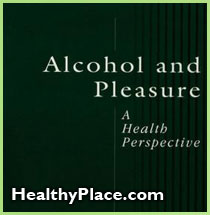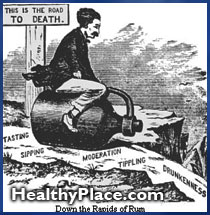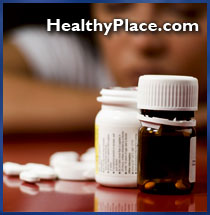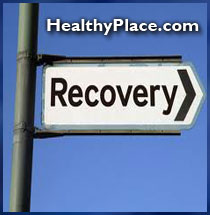
In order to understand the nature of the pleasure alcohol produces, and the role that pleasure plays in healthy and unhealthy drinking, Stanton organized the program for the conference, "Permission for Pleasure" for the International Center for Alcohol Policies. The volume from this conference has been published; Stanton contributed an Introduction to explain the need to examine pleasure in drinking and the resistance of public health professionals and authorities to doing so.
In: S. Peele & M. Grant (Eds.) (1999), Alcohol and pleasure: A health perspective, Philadelphia: Brunner/Mazel, pp. 1-7
© Copyright 1999 Stanton Peele. All rights reserved.
Morristown, NJ
Like the conference on which it is based, this book is designed to address the concept of pleasure in relation to beverage alcohol. Colloquially, pleasure seems to be an important ingredient in alcohol consumption. Yet it has rarely been incorporated in research or public health models. The book's aim is to bring together existing knowledge on the role of pleasure in drinking and to determine whether the concept is useful for scientific understanding and policy consideration by professionals in government, public health, research, and other fields, in both the developing and developed world, who are concerned with the consumption of alcohol.
Why Is This Topic Worthwhile?
Pleasure Is an Important Motivation for Drinking Alcohol
In their surveys of drinking behavior in the United States, the Alcohol Research Group has asked ordinary drinkers about their "experiences after drinking." Among current drinkers, by far the most common response was "felt happy and cheerful" (Cahalan, 1970, p. 131; see Brodsky & Peele, 1999). The Mass Observation studies begun in the 1940s questioned ordinary drinkers closely about their drinking experiences and expectations (Lowe, 1999; Mass Observation, 1943, 1948). Some focused on the contents of the beverage ("It tastes good"), some on the mood it engenders ("It relaxes me, makes me feel good"), some on the ritual or social elements ("I like relaxing at home over a drink" or "I like getting together with my mates and downing a few at the pub"). This straightforward approach of asking drinkers about their current motivations for and experiences of drinking is represented in expectancy research (Goldman et al., 1987; Leigh, 1999), including especially younger drinkers (Foxcroft & Lowe, 1991). Most people who consume alcohol indicate that they anticipate a positive change in experience from drinking, although this means different things for different groups.
Pleasure Plays a Role in Both Ordinary and Problematic Drinking
Cahalan (1970) divided drinkers into those who have never experienced problems from drinking, those who experienced such problems in the past but not at present, and those who experience substantial drinking problems currently. For all groups among both genders, pleasure (feeling happy and cheerful) remained the single most common drinking experience. More problem drinkers gave pleasure as a response to questions about drinking experiences, but they gave higher rates of response to every type of drinking experience and consequence. This may be because they drink more and have more of all such experiences. At the same time, pleasure may motivate both normal, social drinking and problematic drinking, but heavy or problem drinkers may define pleasure differently (Critchlow, 1986; Marlatt, 1999). Younger drinkers more often drink for effect than for ritual pleasure (Foxcroft & Lowe, 1991), although all drinkers emphasize the socially pleasurable functions of drinking (Lowe, 1999).
Issues to be Engaged
- Is pleasure a useful concept for explaining alcohol consumption?
- What distinguishes pleasure as a healthful or harmful motivation in drinking behavior?
- Can the concept of pleasure be used to encourage healthy drinking?
Why Are New Approaches to Alcohol Consumption Required?
Alcohol Consumption Will Always Be a Critical Public Health Issue Worldwide
Although the World Health Organization Regional Office for Europe (Edwards et al., 1994; WHO, 1993) and other health agencies worldwide have officially adopted reduced national alcohol consumption as a target, the elimination of all beverage alcohol is not a possibility, and even the goal of reduced consumption may be hard to achieve. In developed nations, alcohol consumption increased dramatically from about 1950 to the middle to late 1970s, although in the longer historical perspective, the 1970s were not an all-time high period of consumption (Musto, 1996). Following the 1970s, many, but far from all, developed countries showed decreases in consumption. However, "the more recent declines in consumption typical of many developed countries have not appeared in many developing nations," where consumption is still increasing (Smart, 1998, p. 27). Nonetheless, developing nations still consume less alcohol per capita than developed nations. Thus styles, patterns, and levels of consumption and motivations for drinking in relation to these questions will remain critical public health issues. This may be particularly so in developing nations, which have perhaps fewer moderating traditions and yet in which consumption is increasingly rapidly (see Odejide & Odejide, 1999).
Public Health Policy Ignores the Almost Universal Motivation to Drink
Although people at large seem to be strongly motivated to drink alcohol with expectations of positive effects (Leigh, 1999), this attraction to alcohol is largely ignored by the public health sector. What makes this apparent oversight more puzzling is that a large percentage of those involved in alcohol policy and research themselves drink—if drinking behavior evinced at the conference upon which this volume is based may be used as a yardstick. This suggests that personal or cultural ambivalence may be a worthwhile point for investigation, and may need to be confronted by policy professionals, as policies that ignore the almost universal motivation to consume alcohol face long odds against succeeding (Stockwell & Single, 1999).
Issues to be Engaged
- What is the impact of pleasure on the nature of and trends in drinking in the developing world, and does pleasure mean something different—have a different impact—there than in the developed world?
- What has prevented professionals from using pleasure as a policy tool and scientific concept and is this continuing lacuna detrimental?
Why Discuss Drinking and Pleasure Now?
Change and Stasis in the Alcohol Debate
The benefits of alcohol for coronary artery disease are now quite broadly accepted (Doll, 1997; Klatsky, 1999; WHO, 1994). The CAD benefits of moderate drinking may well prolong life (Poikolainen, 1995). Nonetheless, the debate persists over whether to present such benefits to the public (Skog, 1999), and notably concern that children should not be exposed to information about possible benefits of drinking. Thus, at the same time that the 1995 U.S. Dietary Guidelines (U.S. Department of Agriculture/Department of Health and Human Services, 1995) discussed coronary-disease benefits of alcohol consumption, as did the British sensible drinking guidelines (Department of Health and Social Security, 1995) and standards established by other Western nations (International Center for Alcohol Policies, 1996a, 1996b), this discussion is still controversial. Already, interest groups have mounted campaigns to reverse the language in the U.S. Guidelines when these are reconsidered after 5 years, just as the current guidelines reversed those from 5 years earlier.
Current Approaches Towards Alcohol are Almost Totally Problem-Oriented
This is the end process of a long period in the U.S. and worldwide of identifying and addressing the problematic nature of alcohol consumption. And while there may still be room to extend this problem focus to new groups, and to deepen the depiction of the severity of worldwide drinking problems, we have proceeded quite a long way in this direction. At the same time, in the West and much of the rest of the world, alcohol production and consumption is legal, commercially marketed, and informally encouraged. Thus, considerable contention is built into the consideration of beverage alcohol. Yet, the possibility of broad agreement also seem attainable in the establishment of benefits from drinking among public health advocates, while alcohol producers recognize that problem drinking leads to serious and widespread social and health consequences.
One recent development that suggests the value of pleasure as a public health concept is the health-economics conception of quality of life as a measurable and important ingredient in health (Nussbaum & Sen, 1993; Orley, 1999). For health economists, years survived alone do not describe the outcome of a disease event or intervention (Orley, 1994). Pleasure may be one reflection of quality-of-life considerations in drinking decision making and outcomes. To suggest this is to be conscious of the great differences in the apparent enjoyment of drinking events—from a shouting, angry public inebriate, to a person guiltily sneaking a drink alone, to a person drinking pleasantly in a shared experience within the family or with friends, for instance. These differences are reflected in cross-cultural, national, and group differences in the experience of alcohol, suggesting they can be detailed and utilized (Douglas, 1987; Hartford & Gaines, 1982; Heath, 1995, 1999).
Issues to be Engaged
- Does an understanding of pleasure in drinking offer a route to moderate polarization in views on the role of alcohol in society?
- Can important individual, group, cultural, and situational differences in the pleasure of drinking experiences be understood and related to positive outcomes so that these can be encouraged as a part of health policies?
Why a Conference?
This volume is based on a conference, one that seemed exciting and novel. The rationale for the conference was to explore a broad topic not thoroughly examined previously, to expose and interpret existing research related to the topic, and to outline the state of knowledge and areas where future investigation is necessary. Since it is unlikely that the evidence on the conference topics covered in this volume will prove definitive, it is important to air different perspectives and interpretations in order to see whether a new approach appears to be fruitful and deserves further attention. Among the topics the conference opened for discussion are the following:
- The meaning of pleasure in cultural context: How do people define pleasure? How central a motivator is pleasure for them? Are there differences in the definitions and importance of pleasure in different cultures (East v. West, for example; see Sharma & Mohan, 1999; Shinfuku, 1999)? Is pleasure useful as a health concept (see David, 1999)?
- Pleasure and drinking: How do people define pleasure in relation to drinking? Are there differences in pleasurable drinking levels and styles according to situation (e.g., wedding v. fraternity party; see Single & Pomeroy, 1999), group (e.g., male v. female; see Camargo, 1999; Nadeau, 1999), or culture (e.g., Nordic v. Mediterranean; see Heath, 1999)? How do people vary in their expectations of pleasure when drinking (see Leigh, 1999)? Do differences in views of pleasure and its association with drinking explain different patterns of drinking (see Marlatt, 1999)?
- Pleasure and public health: Is pleasure a worthwhile goal to encourage in drinkers? How does pleasurable drinking affect the likelihood drinking problems (see Peele, 1999)? Does pleasure offer a point of departure for respecting cultural differences (see Asare, 1999; MacDonald & Molamu, 1999; Rosovksy, 1999), for offering drinkers with different values a way to orient and control their drinking (see Kalucy, 1999), for communicating effectively with drinkers (see Stockwell & Single, 1999)? How does the consideration of pleasure in drinking policy affect individuals, educators, families, clinicians, communities, nations, and the planet as a whole (see Peele, 1999)?
Conclusion
After a longstanding period of public health attention to alcohol, one primarily concerned with the problematic aspects of drinking, alcohol consumption remains both a major public health concern and a popular, widespread, and irreducible activity. Even the sternest public health advocates cannot reasonably expect to eliminate or indefinitely reduce drinking worldwide, nor do the data clearly show that such a goal would produce a public health gain. It is clearly established, for example, that drinking is associated with reduced heart disease epidemiologically in all parts of the Western world (Criqui & Ringel, 1994).
Pleasure in drinking is an understudied phenomenon. In addition to its appeal as a lay explanation for drinking, measurement efforts also indicate it is the primary goal in alcohol consumption. This volume and the conference on which it is based propose that enhancing our understanding of conceptions and differences in conceptions of pleasure, the actual role of pleasure as a motivator, and pleasure as a communication and a public health tool could advance our understanding of and ability to deal with beverage alcohol.
References
Asare, J. (1999). Alcohol use, sale, and production in Ghana. In S. Peele & M. Grant (Eds.), Alcohol and pleasure: A health perspective (pp. 121-130). Philadelphia: Brunner/Mazel.
Brodsky, A., & Peele, S. (1999). Psychosocial benefits of moderate alcohol consumption: Alcohol's role in a broader conception of health and well-being. In S. Peele & M. Grant (Eds.), Alcohol and pleasure: A health perspective (pp. 187-207). Philadelphia: Brunner/Mazel.
Cahalan, D. (1970). Problem drinkers. San Francisco: Jossey-Bass.
Camargo, C.A., Jr. (1999). Gender differences in the health effects of moderate alcohol consumption. In S. Peele & M. Grant (Eds.), Alcohol and pleasure: A health perspective (pp. 157-170). Philadelphia: Brunner/Mazel.
Criqui M.H., & Ringel B.L. (1994). Does diet or alcohol explain the French paradox? Lancet, 344, 1719-1723.
Critchlow, B. (1986). The powers of John Barleycorn: Beliefs about the effects of alcohol on social behavior. American Psychologist, 41, 751-764.
David, J-P. (1999). Promoting pleasure and public health: An innovative initiative. In S. Peele & M. Grant (Eds.), Alcohol and pleasure: A health perspective (pp. 131-136). Philadelphia: Brunner/Mazel.
Department of Health and Social Security. (1995). Sensible drinking: The report of an interdepartmental working group. London: Her Majesty's Stationary Office.
Doll, R. (1997). One for the heart. British Medical Journal, 315, 1664-1668.
Douglas, M. (Ed.). (1987). Constructive drinking: Perspectives on drink from anthropology. Cambridge, UK: Cambridge University Press.
Foxcroft, D.R., & Lowe, G. (1991). Adolescent drinking behaviour and family socialization factors: A meta-analysis. Journal of Adolescence, 14, 255-273.
Goldman, M.S., Brown, S.A., & Christiansen, B.A. (1987). Expectancy theory: Thinking about drinking. In Blane, H.T. & Leonard, K.E. (Eds.), Psychological theories of drinking and alcoholism (pp. 181-126). New York: Guilford.
Hartford, T.C., & Gaines, L.S. (Eds.). (1982). Social drinking contexts (Research Monograph 7). Rockville, MD: National Institute on Alcohol Abuse and Alcoholism.
Heath, D. (1995). International handbook on alcohol and culture. Westport, CT: Greenwood Press.
Heath, D.B. (1999). Drinking and pleasure across cultures. In S. Peele & M. Grant (Eds.), Alcohol and pleasure: A health perspective (pp. 61-72). Philadelphia: Brunner/Mazel.
International Center for Alcohol Policies. (1996a). Safe alcohol consumption. A comparison of Nutrition and your health: Dietary guidelines for Americans and Sensible drinking (ICAP Reports I). Washington, DC: Author.
International Center for Alcohol Policies. (1996b). Safe alcohol consumption. A comparison of Nutrition and your health: Dietary guidelines for Americans and Sensible drinking (ICAP Reports I, Suppl.). Washington, DC: Author.
Kalucy, R. (1999). Guilt, restraint, and drinking. In S. Peele & M. Grant (Eds.), Alcohol and pleasure: A health perspective (pp. 291-303). Philadelphia: Brunner/Mazel.
Klatsky, A.L. (1999). Is drinking healthy? In S. Peele & M. Grant (Eds.), Alcohol and pleasure: A health perspective (pp. 141-156). Philadelphia: Brunner/Mazel.
Leigh, B.C. (1999). Thinking, feeling, and drinking: Alcohol expectancies and alcohol use. In S. Peele & M. Grant (Eds.), Alcohol and pleasure: A health perspective (pp. 215-231). Philadelphia: Brunner/Mazel.
Lowe, G. (1999). Drinking behavior and pleasure across the life span. In S. Peele & M. Grant (Eds.), Alcohol and pleasure: A health perspective (pp. 249-263). Philadelphia: Brunner/Mazel.
MacDonald, D., & Molamu, L. (1999). From pleasure to pain: A social history of Basarwa/San alcohol use in Botswana. In S. Peele & M. Grant (Eds.), Alcohol and pleasure: A health perspective (pp. 73-86). Philadelphia: Brunner/Mazel.
Marlatt, G.A. (1999). Alcohol, the magic elixir? In S. Peele & M. Grant (Eds.), Alcohol and pleasure: A health perspective (pp. 233-248). Philadelphia: Brunner/Mazel.
Mass Observation. (1943). The pub and the people. Falmer, UK: University of Sussex Mass Observation Archive.
Mass Observation. (1948). Drinking habits. Falmer, UK: University of Sussex Mass Observation Archive.
Musto, D.F. (1996, April). Alcohol and American history. Scientific American, pp. 78-82.
Nadeau, L. (1999). Gender and alcohol: The separate realities of women's and men's drinking. In S. Peele & M. Grant (Eds.), Alcohol and pleasure: A health perspective (pp. 305-321). Philadelphia: Brunner/Mazel.
Nussbaum, M., & Sen, A. (Eds.). (1993). Quality of life. New York: Oxford University Press.
Odejide, O.A., & Odejide, B. (1999). Harnessing pleasure for population health ends. In S. Peele & M. Grant (Eds.), Alcohol and pleasure: A health perspective (pp. 341-355). Philadelphia: Brunner/Mazel.
Orley, J. (1994). Quality-of-life assessment: International perspectives. Secaucus, NJ: Springer-Verlag.
Orley, J. (1999). Pleasure and quality of life calculations. In S. Peele & M. Grant (Eds.), Alcohol and pleasure: A health perspective (pp. 329-340). Philadelphia: Brunner/Mazel.
Peele, S. (1999). Promoting positive drinking: Alcohol, necessary evil or positive good? In S. Peele & M. Grant (Eds.), Alcohol and pleasure: A health perspective (pp. 375-389). Philadelphia: Brunner/Mazel.
Poikolainen, K. (1995). Alcohol and mortality. Journal of Clinical Epidemiology, 48, 455-465.
Rosovsky, H. (1999). Drinking and pleasure in Latin America. In S. Peele & M. Grant (Eds.), Alcohol and pleasure: A health perspective (pp. 87-100). Philadelphia: Brunner/Mazel.
Sharma, H.K., & Mohan, D. (1999). Changing sociocultural perspectives on alcohol consumption in India: A case study. In S. Peele & M. Grant (Eds.), Alcohol and pleasure: A health perspective (pp. 101-112). Philadelphia: Brunner/Mazel.
Shinfuku, N. (1999). Japanese culture and drinking. In S. Peele & M. Grant (Eds.), Alcohol and pleasure: A health perspective (pp. 113-119). Philadelphia: Brunner/Mazel.
Single, E., & Pomeroy, H. (1999). Drinking and setting: A season for all things. In S. Peele & M. Grant (Eds.), Alcohol and pleasure: A health perspective (pp. 265-276). Philadelphia: Brunner/Mazel.
Skog, O-J. (1999). Maximizing pleasure: Alcohol, health, and public policy. In S. Peele & M. Grant (Eds.), Alcohol and pleasure: A health perspective (pp. 171-186). Philadelphia: Brunner/Mazel.
Smart, R. (1998). Trends in drinking and patterns of drinking. In M. Grant & G. Litvak (Eds.), Drinking patterns and their consequences (pp. 25-41). Washington, DC: International Center for Alcohol Policy.
Stockwell, T., & Single, E. (1999). Reducing harmful drinking. In S. Peele & M. Grant (Eds.), Alcohol and pleasure: A health perspective (pp. 357-373). Philadelphia: Brunner/Mazel.
U.S. Department of Agriculture/Department of Health and Human Services. (1995). Nutrition and your health: Dietary guidelines for Americans (4th ed.). Washington, DC: U.S. Government Printing Office.
WHO. (1993). European alcohol action plan. Copenhagen, Denmark: World Health Organization Regional Office for Europe.
WHO. (1994). Cardiovascular disease risk factors: New areas for research (WHO Technical Report Series 841). Geneva, Switzerland: Author.
next: Is 'Dry Drunk' a Real Medical Diagnosis?
~ all Stanton Peele articles
~ addictions library articles
~ all addictions articles


 Do you think that the whole seratonin transmitter thing is totally wrong regarding depression? I have suffered from depression for at least thirty years. And I've been through therapy, AA and whatever else I could do to self help myself. What a bunch of crap!
Do you think that the whole seratonin transmitter thing is totally wrong regarding depression? I have suffered from depression for at least thirty years. And I've been through therapy, AA and whatever else I could do to self help myself. What a bunch of crap! F.A.C.T.S. is a non-profit agency I started in 1985 with one of my professors, since retired, and we specialize in Family Violence, Anger and Substance Abuse. I am a twenty year retired Air Force Officer, who specialized in Substance Abuse Education and Rehabilitation and Equal Opportunity in the Service. At that time I believed all the propaganda and said the AA was the only way, but was always doubting this. When I retired I went back to school for more Degrees (Social Work) and training and got turned on by REBT and the reasonableness of identifying problems based upon thinking rather than powerlessness, loss of control and higher powers. This whole process fit into our organization with regards to the "Batterers Intervention Programs" and "Anger Control Program" which we have developed. We are again on the outside of some of the approved thinking in these areas, because we are not "Object Relations" oriented, and do not attribute these problems to Unattached or Unbonded childhood experiences. I was trained in this process, especially in Rage Reduction Therapy, by Foster Cline, MD of the Evergreen Associates program in Colorado. In most all these programs people are trying to find the cause or justify the behavior and I find that to be either bullshit or a waste of time. What are we going to do about the behavior? Substance abuse is probably the easiest to measure in that quantities, number of times, and outcomes can be measured, but not by the AA method — a behavioral problem, attributed to a medical disease and cured by a spiritual method!
F.A.C.T.S. is a non-profit agency I started in 1985 with one of my professors, since retired, and we specialize in Family Violence, Anger and Substance Abuse. I am a twenty year retired Air Force Officer, who specialized in Substance Abuse Education and Rehabilitation and Equal Opportunity in the Service. At that time I believed all the propaganda and said the AA was the only way, but was always doubting this. When I retired I went back to school for more Degrees (Social Work) and training and got turned on by REBT and the reasonableness of identifying problems based upon thinking rather than powerlessness, loss of control and higher powers. This whole process fit into our organization with regards to the "Batterers Intervention Programs" and "Anger Control Program" which we have developed. We are again on the outside of some of the approved thinking in these areas, because we are not "Object Relations" oriented, and do not attribute these problems to Unattached or Unbonded childhood experiences. I was trained in this process, especially in Rage Reduction Therapy, by Foster Cline, MD of the Evergreen Associates program in Colorado. In most all these programs people are trying to find the cause or justify the behavior and I find that to be either bullshit or a waste of time. What are we going to do about the behavior? Substance abuse is probably the easiest to measure in that quantities, number of times, and outcomes can be measured, but not by the AA method — a behavioral problem, attributed to a medical disease and cured by a spiritual method! Was developed to treat homeless crack addicts. For the first 2 months, participants must spend 5.5 hours daily in the program, which provides lunch and transportation to and from shelters. Interventions include individual assessment and goal setting, individual and group counseling, multiple psychoeducational groups (for example, didactic groups on community resources, housing, cocaine, and HIV/AIDS prevention; establishing and reviewing personal rehabilitation goals; relapse prevention; weekend planning), and patient-governed community meetings during which patients review contract goals and provide support and encouragement to each other.
Was developed to treat homeless crack addicts. For the first 2 months, participants must spend 5.5 hours daily in the program, which provides lunch and transportation to and from shelters. Interventions include individual assessment and goal setting, individual and group counseling, multiple psychoeducational groups (for example, didactic groups on community resources, housing, cocaine, and HIV/AIDS prevention; establishing and reviewing personal rehabilitation goals; relapse prevention; weekend planning), and patient-governed community meetings during which patients review contract goals and provide support and encouragement to each other.